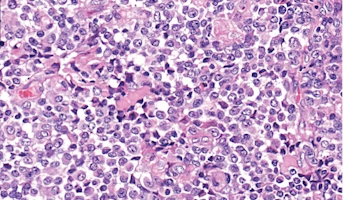Identify Novel Therapeutic Targets and Biomarkers in Non-coding Genome of Pediatric Cancers
Email Principal Investigator
About this
Project
Transcription factors are proteins that control the rate of transcription, the process by which information from DNA is copied into a new molecule of RNA. The information transcribed to the molecule of RNA will then be used as instructions for a cell to build more proteins. Preliminary work done by researchers has identified the transcription factor FoxM1 as playing an important role in the regulation of glioblastoma (GBM) cells. This work has also shown that FoxM1 dysregulation disrupts normal cellular protective mechanisms such as apoptosis (cell death) and senescence (cell aging) while promoting genome instability and mutations. This disruption could eventually lead to the growth of glioblastoma. The genetic underpinnings of regulation of FoxM1 transcription in glioblastoma is poorly understood. Using the Pediatric Brain Tumor Atlas, researchers will pursue deeper understanding of this connection which could lead to the development of new therapies.
Ask The
Scientists
What are the goals of this project?
Preliminary work has shown that transcription factor FoxM1 plays an important role in the regulation of glioblastoma cells and researchers in this project seek to deepen the understanding of that connection.
What is the impact of this project?
A greater understanding of the genetic basis of transcription factor FoxM1 and the role it plays in the development of glioblastoma could lead to the development of targeted therapies.
Why is the CBTN request important to this project?
The Pediatric Brain Tumor Atlas is the largest database of its kind, giving researchers access to important and rare information regarding pediatric brain tumors.
Specimen Data
The Children's Brain Tumor Network contributed to this project by providing access to the Pediatric Brain Tumor Atlas.
Meet The
Team
Institutions

Northwestern University

The Warren Alpert Medical School of Brown University

Primary

Ann & Robert H. Lurie Children’s Hospital of Chicago
Joined onAnn & Robert H. Lurie Children’s Hospital of Chicago treats 220 new patients each year with pediatric cancers. The hospital is ranked 17th in the nation for their pediatric oncology program and 11th for their neurology and neurosurgery program by U.S. News & World Report.Established in 1986, the Lur
related
Histologies
All Brain Tumor Types

Atypical Teratoid/Rhabdoid Tumor
Central nervous system (CNS) atypical teratoid/rhabdoid tumor (AT/RT) is a very rare, fast-growing tumor of the brain and spinal cord. It usually occurs in children aged three years and younger, although it can occur in older children and adults. About half of these tumors form in the cerebellum or
related




